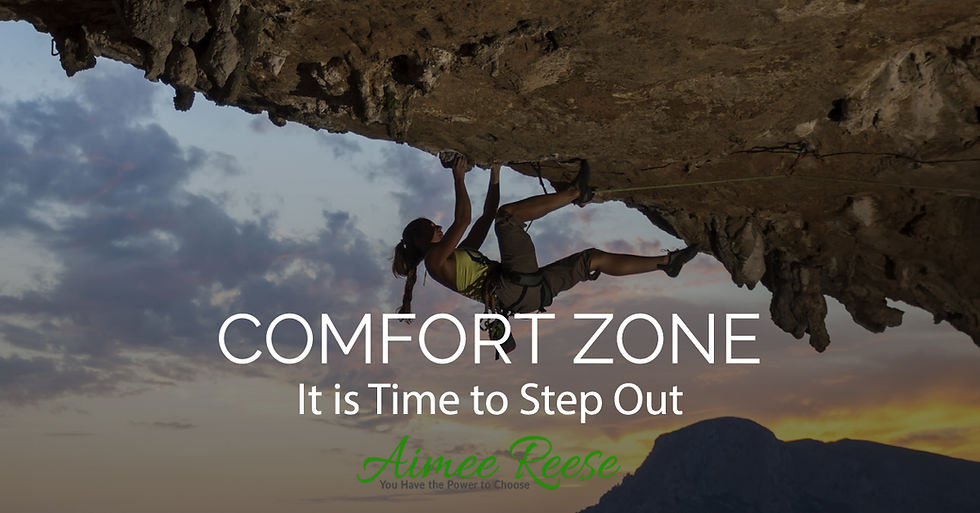WHAT LIES BEYOND YOUR COMFORT ZONE?
- Aimee Reese

- Oct 2, 2017
- 2 min read
At the close of work on Friday, some of your colleagues usually hang out at the bar downtown. They have invited you to join them many times, but you have always politely turned down the invitation. The truth is, you will like to share a few drinks and laughs with them, but you are scared that they may not like the person you are outside the office. Or maybe you just prefer to go home after a busy week, even if you are going home to nobody. You do this every Friday, even when you are not happy with declining the invite because it is safe and familiar.
Scientists describe the comfort zone as the “Corley Syndrome.” Psychologists define it as being a mental boundary put up by a person to mark out areas in which they are secure, outside which they feel unease or discomfort. Your comfort zone is a place where you feel at ease, such that leaving it throws you in a state of anxiety or distress.
It is not uncommon to have people remain in their comfort zone even when they are unhappy or lack fulfillment. This resolve is because they have adjusted to it and find it safe and familiar. As such, so many people remain in relationships, lifestyles, and jobs which are no more productive because they are scared of embarking on a journey into the unknown. Hence, the principal limitation to escaping or expanding your comfort zone is Fear.
It should be noted, however, that you are only able to discover your true potential when you step outside your comfort zone. This theory was proved by scientists when they propounded that humans needed to be in a state of relative anxiety to push their boundaries. Relative anxiety is a state where stress levels are somewhat higher than normal, just enough to get you in a state of providing solutions. The relative anxiety state is necessary for productivity and creativity.
Tips for Stepping Outside Your Comfort Zone
Fear is the biggest challenge here. Ignore by telling yourself you have nothing to lose. Things may not work out as you have planned, but they tend to work out all the same.
Whatever outcome that comes with this should be treated as a learning experience.
Try something different. Something you will never think to do normally.
Reapply yourself or reposition yourself in the market.
Travel or leave home, especially if you have stayed somewhere all your life.
If you are used to traveling or an outdoor person, take some personal time. Spend that time reading books and discovering yourself.
Just break your habit or routine and see where it leads you.
Always aspire for more and find ways to achieve same.
A whole new world lies beyond your comfort zone. One full of opportunities and open for you to explore. So many successful people attribute their successes to stepping outside their norm. A change in career or lifestyle may be what you need to launch you into fulfillment. Comfort can quickly become complacency. In other to be big achievers you need to step outside your comfort zone.




Comments